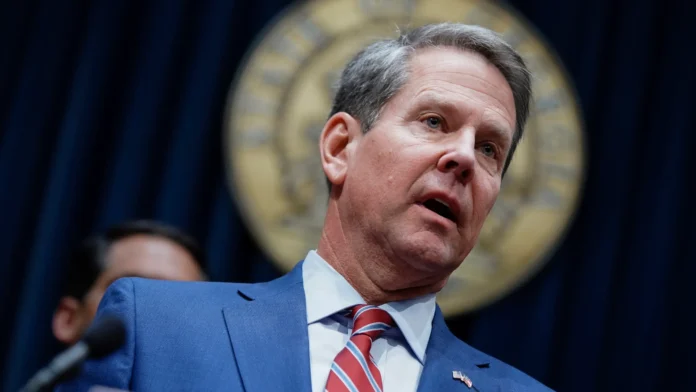The FEMA chief hurricane season controversy has taken center stage as the 2025 Atlantic hurricane season kicks off. On June 2, 2025, David Richardson, the acting head of the Federal Emergency Management Agency (FEMA), reportedly told staff he was unaware the U.S. had a hurricane season, a statement that left employees baffled and raised questions about his leadership. While the Department of Homeland Security (DHS) quickly claimed he was joking, the remark has fueled doubts about FEMA’s preparedness for a predicted above-average storm season. With up to 10 hurricanes forecast, this incident has put Richardson and FEMA under intense scrutiny.
The FEMA Chief Hurricane Season Comment Explained
During a Monday morning briefing, Richardson, who assumed FEMA’s leadership in early May, made the surprising remark just one day after the hurricane season began on June 1. Staff members were unsure whether he meant it seriously or as a jest. The comment, delivered during an all-hands meeting, came at a time when FEMA is already grappling with low morale, recent firings, and leadership changes. Some employees felt the statement, even if humorous, was in poor taste given the agency’s critical role in disaster response. The National Oceanic and Atmospheric Administration (NOAA) predicts 13 to 19 named storms, with six to 10 potentially becoming hurricanes, three to five of which could be major. This forecast underscores the high stakes for FEMA’s readiness.
Who Is David Richardson?
David Richardson, a former Marine artillery officer, lacks prior disaster response experience, which has added to concerns about his suitability as FEMA chief. Before taking the helm, he served as the assistant secretary for countering weapons of mass destruction at DHS, a role he reportedly continues to hold. His appointment followed the abrupt dismissal of his predecessor, Cameron Hamilton, in May 2025, after Hamilton clashed with the Trump administration over FEMA’s structure. Critics, including Senate Minority Leader Chuck Schumer, have called for Richardson’s removal, arguing that disaster response demands expertise, not offhand remarks that undermine confidence.
FEMA’s Challenges Amid the Hurricane Season
The FEMA chief hurricane season controversy arrives at a precarious moment. FEMA has faced significant upheaval, with roughly 2,000 staff members either fired or resigned under the current administration. The agency recently scaled back hurricane training and workshops for state and local emergency managers due to budget and travel restrictions. Despite these challenges, DHS Secretary Kristi Noem approved retaining over 2,600 short-term disaster workers to bolster FEMA’s capacity. However, President Donald Trump and some allies have floated plans to dismantle FEMA, shifting disaster response to state and local governments—a proposal experts call unrealistic given the scale of potential storms.
Public and Political Reactions
The public response to Richardson’s comment has been swift and sharp. Social media platforms have buzzed with criticism, with users expressing disbelief that the FEMA chief could appear unaware of a critical season that runs from June 1 to November 30. Politicians have also weighed in. Representative Bennie Thompson, a senior Democrat on the House Homeland Security Committee, stated that such remarks, even if joking, show a lack of qualification to lead FEMA. Meanwhile, DHS insists FEMA is fully prepared, emphasizing that Richardson’s comment was not policy but a misunderstood attempt at humor.
Why This Matters for 2025
The FEMA chief hurricane season incident isn’t just a PR misstep; it highlights deeper concerns about the agency’s ability to handle a potentially devastating season. NOAA’s forecast suggests a 60% chance of an above-average season, with storms that could rival Hurricane Helene, which caused widespread damage in 2024. FEMA’s role in coordinating federal aid, deploying resources, and supporting communities is critical. A leader perceived as out of touch could erode trust at a time when clarity and competence are paramount. As storms loom, the agency must rebuild confidence among its staff and the public.
Looking Ahead
As the 2025 hurricane season unfolds, all eyes are on FEMA and its leadership. Richardson’s ability to navigate this crisis of confidence will determine how effectively the agency responds to potential disasters. The public deserves a FEMA chief who inspires trust, not skepticism. For now, the agency claims readiness, but the shadow of this controversy lingers. Communities in hurricane-prone areas, from Florida to the Carolinas, need assurance that FEMA is equipped to act swiftly and effectively when storms strike.
Stay informed about hurricane season developments and ensure your family is prepared. Check local emergency plans, stock up on supplies, and follow NOAA updates to stay ahead of potential storms.
